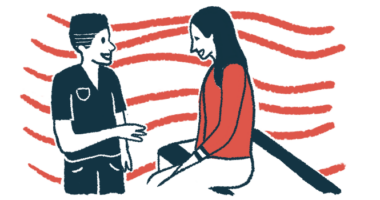Tips for aHUS Caregivers

Caring for someone with atypical hemolytic uremic syndrome (aHUS) can be a stressful. Here are some tips to help you cope with stress and maintain your well-being.
Take good care of your own health
It is common to lose track of your needs when looking after someone affected by chronic disease, and this can take a toll on your health. But the health of the person you are caring for often depends on your overall well-being, so make certain to eat well and get sufficient rest. If you too are taking necessary medications, make sure not to miss doses.
Join a support group
Realize that you are alone. Feelings of isolation and loneliness add to stress, and can lead to serious complications such as depression. There are support groups that you can turn to for information and help. Organizations that provide support and networking opportunities for aHUS caregivers include the aHUS Alliance, American Kidney Fund, aHUS Foundation, and aHUS Canada.
Take a break
The requirements of caregiving can get pretty demanding at times, and often lead to feelings of frustration and guilt. You may run the risk of venting out your frustration on the person you’re caring for or with doctors. Caregiving stress can also place you at risk of alcohol and drug abuse.
If you’ve been experiencing such frustration or guilt, it’s time to take a break. Go out for a walk, socialize, hang-out with friends, or engage in other activities that help to calm and rejuvenate you.
Adopt a goal-based approach
aHUS symptoms, like those of other chronic diseases, require long-term care and management. It can be helpful to set short, achievable goals for yourself and the person you’re caring for. Doing so gives you a sense of achievement and can keep you motivated and moving forward. Goals can be as simple as working toward reducing daily fatigue, to something more complex like monitoring seizures to spot things that help reduce them.
Be realistic while setting goals, keeping in mind both your current state and that of your patient. When necessary, seek additional help in caregiving tasks.
Stay updated
New information about therapies, ongoing research, and clinical trials for aHUS comes out at any time, and often does so regularly. It can help to keep updated on the latest developments in this disease, and awareness of such news can add to doctor visits, where possibilities like enrolling in a relevant clinical trial might arise.
For starters, subscribing to our website is one way to stay in the loop.
Consult your doctor
Make sure to keep your doctor updated about your caregiving approaches on a regular basis. Many caregivers have no formal training in caregiving, so regular discussions or correspondence with the doctor help to ensure you’re on the right track, and help greatly in quickly identifying and addressing any problems or issues.
Last updated: Sept. 19, 2019
***
AHUS News is strictly a news and information website about the disease. It does not provide medical advice, diagnosis, or treatment. This content is not intended to be a substitute for professional medical advice, diagnosis, or treatment. Always seek the advice of your physician or other qualified health provider with any questions you may have regarding a medical condition. Never disregard professional medical advice or delay in seeking it because of something you have read on this website.






